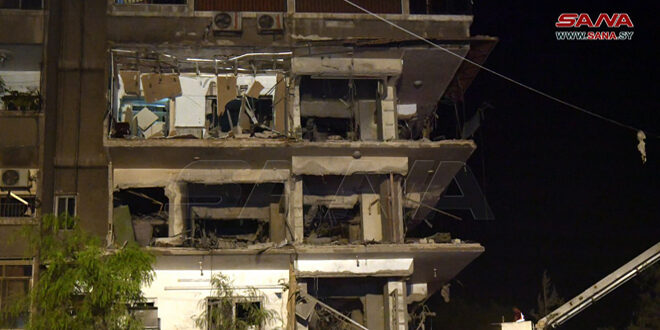An Israeli airstrike on the Mezzeh neighbourhood of Damascus has sparked outrage and widespread mourning, with reports indicating both civilian casualties and the possible targeting of a senior Iranian commander. The attack took place on Tuesday, October 8, near the Iranian embassy in a densely populated area of the Syrian capital.
Alleged Target: Senior Iranian Commander
While the human cost of the strike was devastating, multiple reports suggest that the attack may have been aimed at a high-profile military target. Syria TV, citing special sources, claimed that the building housed Iranian officers and their families, and that a senior Iranian commander was the intended target. Hebrew media corroborated these claims, mentioning that the strike likely targeted a commander within the Iranian Revolutionary Guard, although the official’s identity remains undisclosed.
The New York Times reported that Israeli officials stated the target was a Lebanese Hezbollah official involved in arms smuggling. The Syrian Observatory for Human Rights added that, in addition to the civilian casualties, a Hezbollah official and three others were killed in the attack.
Civilian Casualties and Mourning
According to local and international sources, Israeli warplanes launched three missiles from the occupied Golan Heights, striking a residential and commercial building in Mezzeh. The official Syrian news agency, SANA, reported that the assault resulted in the deaths of seven civilians, including women and children, with 11 others injured. The impact caused significant damage to private property and sparked rescue operations to search for survivors in the rubble.
Social media platforms were filled with tributes to the victims, among them Dr. Rahaf Abdul Rahim Qamhia, a resident doctor specializing in nephrology at the Damascus Health Directorate, originally from Homs. Another tragic loss was Yemeni Dr. Shawqi Hussein al-Awdi, a professor of pharmaceutical sciences at the Syrian Private University, who died alongside his wife and three daughters.
Syrian Government’s Response and Regional Implications
The Syrian government has condemned the strike in the strongest terms, calling it a brutal and criminal act against defenseless civilians and accusing Israel of violating international law. In its official statement, the Syrian Foreign Ministry urged the international community to take immediate action to hold Israel accountable for its ongoing aggression in the region, which it described as a deliberate attempt to sow chaos and instability.
While Israel has not officially claimed responsibility for the attack, it has a history of targeting sites in Syria linked to the Iranian military and Hezbollah. Over the years, Israeli airstrikes in Syria have predominantly focused on military positions, infrastructure, and facilities associated with Iran and its allied militias. The frequency of these strikes has increased in recent weeks, coinciding with rising tensions between Israel and Hezbollah in Lebanon.
Despite widespread speculation that Iranian or Hezbollah officials were the intended targets of the Mezzeh airstrike, the Iranian embassy in Damascus denied that any of its officers or commanders were killed or injured in the attack.
As the conflict in the region continues to escalate, the toll on both civilian and military lives underscores the volatile nature of the ongoing hostilities and the increasing complexity of the Syrian battlefield.


